Settlement For Traumatic Brain Injury in Ontario, Canada
Average Settlement For a Traumatic Brain Injury in Ontario, Canada
Traumatic brain injury (TBI) is a leading cause of death and disability in Ontario. Car accidents are one of the most common causes of TBI, with many victims suffering long-term effects from their injuries. While no money can restore what was lost due to a traumatic brain injury. Understanding the legal options available in Ontario can help victims and their families receive compensation for medical costs and other damages associated with the accident.
Knowing the average settlement amounts for TBI after car accidents in Ontario is also important when determining how much you may be entitled to receive. This webpage will discuss the average settlement amounts for traumatic brain injury, the chances of getting TBI after the accident, and settlement facts. We’ll also review the legal options available to those impacted by TBI after a car accident in Ontario. Lastly, we’ll provide some tips on maximizing your potential settlement if you are ever involved in a car accident that leads to a traumatic brain injury in Ontario.
- Average Settlement Amounts For Traumatic Brain Injuries in Ontario
- Can You Get a Brain Injury from a Car Accident in Ontario
- Can You Drive after a Traumatic Brain Injury in Ontario
- What Are the After Effects of a Traumatic Brain Injury in Ontario
- Traumatic Brain Injury Car Accident Settlement Facts in Ontario
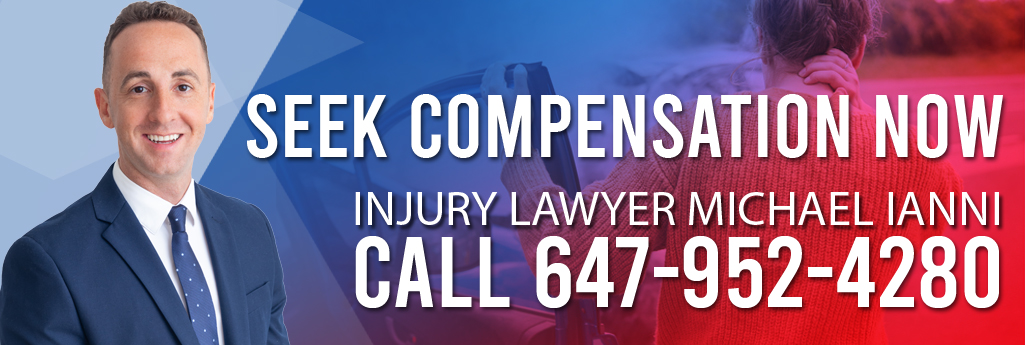
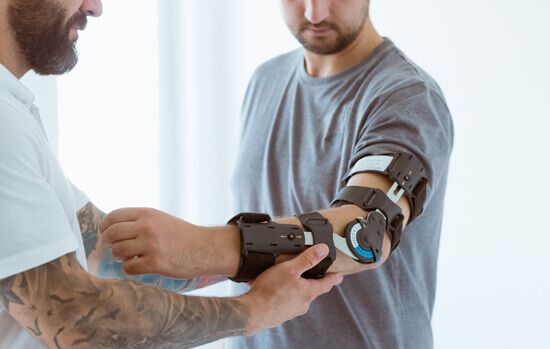
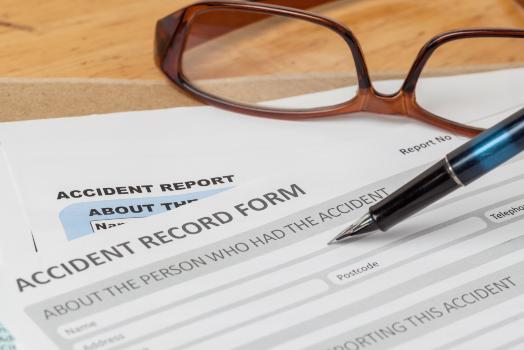
Average Settlement Amounts For Traumatic Brain Injuries in Ontario, Canada
What Are The Average Settlement Amounts For Traumatic Brain Injuries in Ontario, Canada
When a person suffers a traumatic brain injury (TBI) in Ontario due to the negligence or intentional actions of another, they may be entitled to receive financial compensation. This compensation, known as a settlement, is meant to cover the injured person’s medical expenses, lost wages, and/or pain and suffering.
When it comes to traumatic brain injury, it can be difficult to determine the average settlement amount for those in Ontario. Traumatic brain injuries are extremely serious and can have long-term implications for the individual and their family, not to mention the financial burden that can result.
In Ontario, the amount of a settlement offered for a traumatic brain injury can vary widely depending on several factors. These factors include the severity of the injury, the insurance coverage available and the amount of lost wages. Last but not least, the injured person’s age, mental anguish, loss of enjoyment in life, loss of consortium, pain and suffering, the severity of any cognitive impairments and the amount of medical expenses incurred. For example, if a person had an extremely severe traumatic brain injury after a car accident, they would likely be offered a larger settlement to cover the necessary care and rehabilitation.
In general, the more severe the injury, the greater the potential settlement. For example, a person who has suffered a severe brain injury may be able to receive compensation of several hundred thousand dollars. In comparison, someone with a relatively mild injury may only receive a few thousand dollars.
It is important to note that most settlements are not awarded in a lump sum. Instead, they are paid out over some time as a structured settlement. This allows the injured person to receive regular payments instead of managing a large lump sum of money.
No two cases are the same, and the compensation you may receive can vary widely in Ontario. However, for a traumatic brain injury in Ontario, the average settlement amount typically ranges from $50,000 to $500,000. In some cases, especially if a significant amount of medical expenses have been incurred, settlements can exceed $1 million.
The Canadian Institute for Health Information (CIHI) also provides information on traumatic brain injury settlement amounts, including the average amount paid in Ontario. The CIHI also provides information on how settlement amounts are calculated and what factors are considered.
It is important to remember that a settlement is not designed to replace the quality of life lost due to a traumatic brain injury. Rather, it is meant to provide financial support to ease the financial burden caused by the injury.
Suppose you have suffered a traumatic brain injury in Ontario. In that case, it is important to seek legal advice as soon as possible. Our recommended personal injury lawyer can help you understand the legal process and help you pursue the maximum compensation you are entitled to.
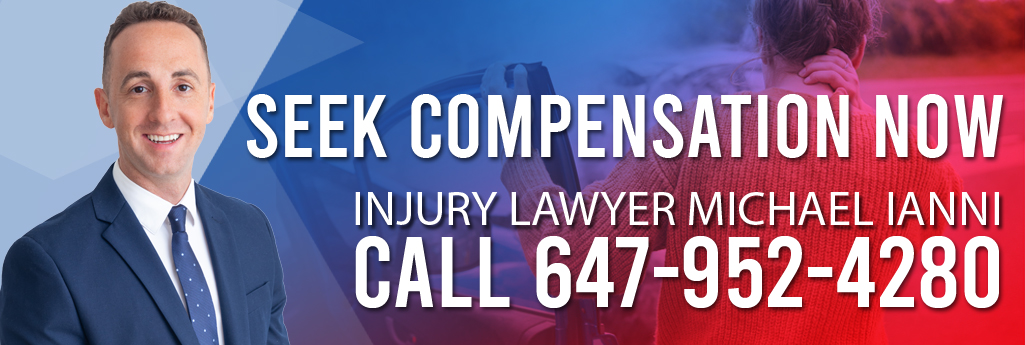


Getting a Brain Injury From a Car Accident in Ontario, Canada
Can You Get a Brain Injury From a Car Accident in Ontario, Canada
Car accidents are one of Ontario’s leading causes of traumatic brain injuries (TBIs). Every day, dozens of Ontarians suffer from the devastating effects of TBIs from motor vehicle accidents. The potential for a car accident to cause a brain injury is real, and Ontarians need to stay vigilant when it comes to driving safely.
Considering the risks of a brain injury from a car accident is important. While the risk of a brain injury from a car crash in Ontario may be lower than in other provinces, it is still a possibility.
The most common cause of a traumatic brain injury from a car accident in Ontario is a direct blow to the head. This could occur from the impact of the car’s frame, the steering wheel, or the windshield. Other causes of TBIs include forceful whiplash and rapid deceleration. In some cases, a TBI can occur even if the person isn’t directly hit by the car.
The consequences of a TBI can range from mild to severe. Mild brain injuries can cause confusion, memory problems, headaches, and other symptoms. Severe TBI can cause coma, paralysis, and even death.
So, can you get a brain injury from a car accident in Ontario?
The answer is YES. Traumatic brain injuries resulting from car accidents are a serious and potentially life-threatening condition.
Suppose you are involved in an Ontario car accident and sustain a head injury. In that case, it is important to seek medical attention immediately. a medical evaluation can help determine the severity of the injury and the best course of treatment. Treatment for TBI can vary, depending on the severity of the damage and the individual’s situation. Treatment may include medications, physical therapy, speech therapy, and other interventions.
In some cases, people who have suffered a brain injury from a car accident may be eligible for financial compensation. This can include compensation for medical expenses, lost wages, and other out-of-pocket costs.
It’s also important to help prevent a brain injury from a car accident in Ontario. Wear your seatbelt, refrain from using your cell phone while driving, and obey all traffic laws to reduce your risk of a TBI.
There is no doubt that a car accident can leave you with a traumatic brain injury. But with appropriate medical treatment and the help of a lawyer, you can minimize the long-term effects of a brain injury and seek compensation for your losses. a personal injury lawyer can help you understand your legal rights and how to best pursue a compensation claim.
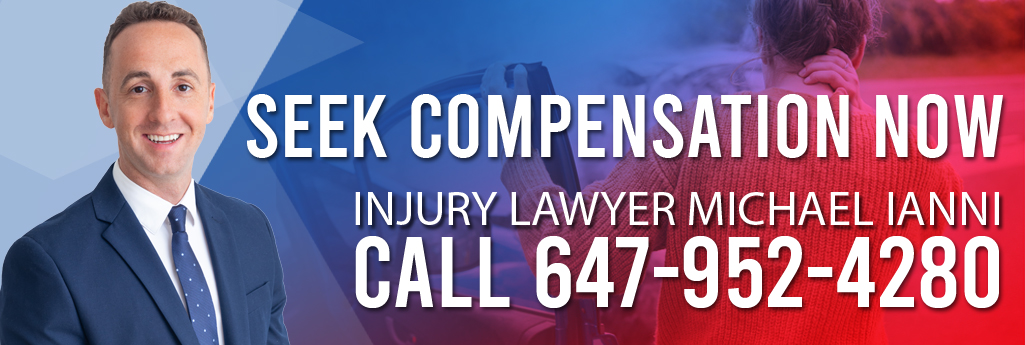

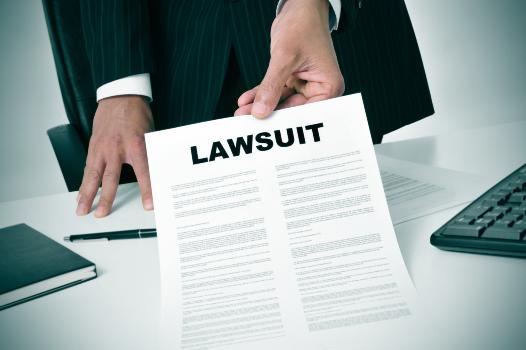
Can You Drive After a Traumatic Brain Injury in Ontario, Canada
Answering the Question: Can You Drive After a Traumatic Brain Injury in Ontario, Canada
Traumatic brain injuries (TBIs) are one of the most serious injuries a person can suffer, and they can drastically impact a person’s life. After a TBI, getting help and treatment as soon as possible is important to recover fully. But, once that’s done, one of the most important questions is, “Can I drive after a traumatic brain injury in Ontario?”
When it comes to driving after a traumatic brain injury (TBI) in Ontario, there are many factors to consider. TBIs can cause physical and cognitive disabilities that can affect a person’s ability to operate a motor vehicle safely.
The first step in determining whether or not you can drive after a TBI is to assess the severity of your injury and any limitations it may have imposed on your physical and cognitive abilities. Depending on the nature of your injury, you may need to consult with your physician or a specialist to determine the extent of your injury and its effects on your ability to drive.
In addition to assessing your injury, it is important to consider any medications you may be taking. Suppose your medications cause drowsiness, confusion, or impaired judgment. In that case, it is important to speak to your doctor about this before you attempt to get behind the wheel.
Once you understand the nature and severity of your injury and its possible effects on your ability to drive, you should contact the Ministry of Transportation in Ontario. The Ministry has a Driver Evaluation Centre in each region of the Canadian province. These centres will assess your ability to drive and recommend whether or not you can drive safely.
After you’ve received the recommendation from the Driver Evaluation Centre, you may need to take additional steps to receive a valid driver’s licence. This may include completing vision and written tests, undergoing a medical evaluation, and obtaining a valid medical certificate. In some cases, you may need to be accompanied by a designated driver or a qualified driving instructor while you drive.
It is important to understand that obtaining your driver’s licence after a TBI can be lengthy and complex. It is important to be patient and work closely with the Ministry of Transportation to ensure a successful outcome.
Suppose you have suffered a TBI and are still determining whether or not you can drive in Ontario. In that case, it is important to contact the Ministry of Transportation for further information and guidance. With patience, understanding, and the right support, you can get back behind the wheel and continue enjoying the freedom of the open road.
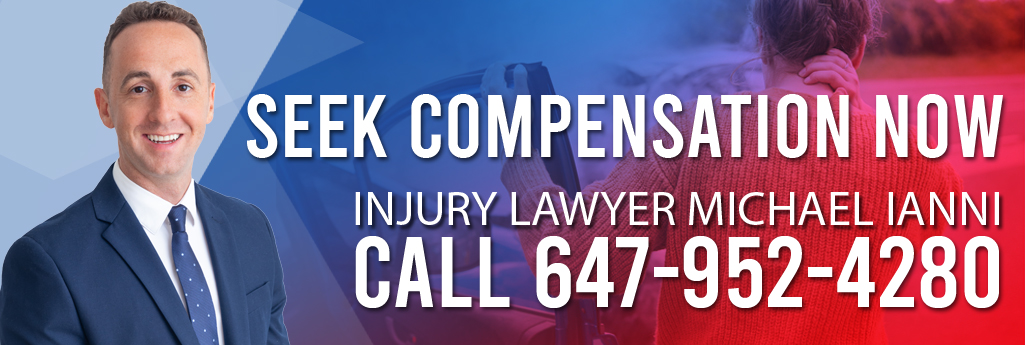


After Effects of a Traumatic Brain Injury in Ontario, Canada
What Are The After Effects of a Traumatic Brain Injury in Ontario, Canada
Traumatic brain injuries (TBIs) are a major cause of death and disability in Ontario and across Canada. They occur when a blow to the head interrupts the brain’s normal functioning, leading to physical, cognitive, and neurological impairments. The effects of a TBI can range from mild to severe and have long-term consequences for those who have experienced it.
In Ontario, the most common type of TBI is a concussion. Concussions can result from various incidents, including falls, motor vehicle accidents, sports activities, and violence. They can range from mild to severe, and the symptoms can last for days, weeks, or even months. Symptoms may include headache, dizziness, confusion, memory problems, loss of consciousness, blurred vision, and sensitivity to light and sound.
Other effects of TBI can include physical, cognitive, and emotional difficulties. Physical symptoms can include dizziness, numbness, balance loss, and coordination difficulty. Cognitive problems may include difficulty with concentration, slower reaction time, difficulty walking, coordination difficulties, confusion or disorientation, reduced processing speed, vision or hearing loss and personality changes. Emotional problems may include depression, anxiety, irritability, and aggression.
The long-term effects of TBI can be even more severe. People who have experienced a TBI may have difficulty with memory, language, and problem-solving. They may experience difficulty with basic daily activities, such as dressing, grooming, and budgeting. They may also struggle with social skills, communication, and impulse control. In extreme cases, people with a TBI may experience seizures, comas, and even death.
In addition to physical and cognitive impairments, a TBI can also have a profound emotional impact. Victims may experience depression, anxiety, or post-traumatic stress disorder (PTSD).
In Ontario, the Provincial Support Program offers financial assistance to people who have experienced a TBI. The program provides funding for medical and rehabilitation services, home care, assistive devices, and caregiver support. In addition, the Ontario Brain Injury Association supports individuals who have experienced a TBI and their families. The association provides resources and advocacy for people who have experienced traumatic brain injury.
If you or a loved one have experienced a TBI, it’s important to seek medical attention and support services. The effects of a TBI can be life-changing and long-lasting, but with the right help and support, it’s possible to manage the symptoms and live a full, productive life.
For those affected by a TBI in Ontario, there are legal options available to provide compensation for the financial and emotional damages sustained from the injury. It is important to speak with a lawyer who is experienced in handling TBI cases to discuss your options and to ensure you receive the compensation you deserve. With the right legal support, TBI victims and their families can obtain financial security and peace of mind.
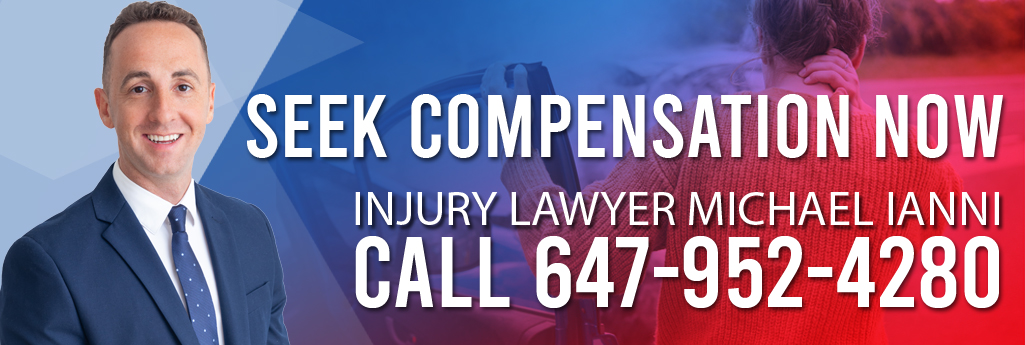
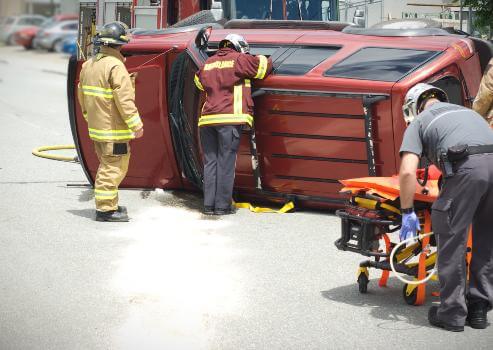

Traumatic Brain Injury Car Accident Settlement Facts in Ontario, Canada
Common Traumatic Brain Injury Car Accident Settlement Facts in Ontario, Canada
As an Ontario car accident victim who has suffered a traumatic brain injury (TBI), it’s important to understand the unique complexities and legal considerations associated with these cases. Regarding receiving a fair car accident settlement in Ontario, there are several key facts you should be aware of regarding TBI car accident settlements in Ontario.
Once you’ve sought medical attention, it’s time to start thinking about maximizing your car accident settlement for a TBI in Ontario. Here are some essential facts to keep in mind:
Your Settlement Amount Could Be Affected by a Number of Factors
In Ontario, the amount of money you can receive as a settlement for a TBI caused by a car accident will depend on many factors, including the severity of your injury and the insurance coverage of the other driver. It’s important to understand the different types of insurance coverage available in Ontario to ensure you’re adequately represented during settlement negotiations.
- You May Have to Consider Hiring a Lawyer
The legal process for car accident settlements in Ontario can be quite complex, especially where a TBI is involved. To ensure that you receive a fair settlement, hiring a lawyer specializing in personal injury cases may be necessary. - You May Be Able to Pursue Punitive Damages
In certain circumstances, pursuing punitive damages in a car accident settlement for a TBI in Ontario may be possible. These damages are designed to punish the at-fault party for their actions in causing the accident. They may be available when the at-fault party acted with a high degree of negligence. - Time Is of the Essence
Time is of the essence when it comes to car accident settlements for a TBI in Ontario. In Ontario, you must file a claim within two years of the date of the accident to be eligible for a settlement.
It is important to remember that traumatic brain injury car accident settlements in Ontario are complex, and victims should seek legal advice as soon as possible. An experienced personal injury lawyer can help victims understand their rights and receive the compensation they deserve.
How to Increase the Value of a Brain Injury Settlement After Car Accident in Ontario
A car accident in Ontario can be a traumatic and life-changing event. Suppose you or a loved one has suffered a brain injury due to an accident. In that case, you may be eligible to receive a settlement.
However, it is important to understand how to maximize the value of the settlement so that you can receive the full compensation you deserve. Here are some tips on increasing the value of a brain injury settlement after a car accident in Ontario.
- Hire a Brain Injury Lawyer
The first step in increasing the value of a brain injury settlement is to hire a qualified lawyer. a lawyer can help you understand the complexities of the legal process and how to maximize the compensation you receive. An experienced lawyer will better understand the law and can advise filing the best claim to get the most compensation. - Document Your Medical Expenses
You’ll need to provide evidence to prove your claim. One of the most important steps in increasing the value of a brain injury settlement is to document all of your medical expenses. This includes medical bills, rehabilitation costs, lost wages, and other related costs. Make sure to keep your receipts and invoices as you may need to provide them to the court as evidence of your medical expenses. - Understand the Statutory Deductible
In Ontario, there is a statutory deductible on personal injury claims. This means that you are entitled to a certain amount of compensation up to a certain amount. It is important to understand the statutory deductible before filing a claim so that you can maximize the amount of compensation you receive. - Track Lost Wages and Expenses
Brain injury settlements often include compensation for lost wages and other expenses. Keep track of all the money you’ve lost due to the accident, including lost wages and other expenses. This will help you prove your claim and ensure you’re adequately compensated. - Seek Quality Medical Care
It’s essential to get quality medical care after a brain injury. Ensure you get all the care you need and follow all your doctor’s instructions. This will ensure that your injury is properly treated and documented and that the extent of your injury is accurately assessed. - Negotiate a Fair Settlement
Once you have gathered all your evidence, it is important to understand how to negotiate a fair settlement with the other party. Your lawyer can help you in this process and advise you on how to best present your case. - Seek Expert Advice
Lastly, it is important to seek the advice of an expert to ensure that you are fully compensated for your injuries. An experienced lawyer can provide you with advice on the best way to handle your case and can provide you with an estimate of the value of your claim.
Following these tips can increase the value of a brain injury settlement after a car accident in Ontario. Understanding the legal process and how to maximize the compensation you receive is important. Additionally, it is important to seek an experienced lawyer’s advice and document all of your medical expenses. By following these steps, you can ensure that you are fully compensated for your injuries.
Traumatic brain injuries can be caused by car accidents in Ontario, leading to life-altering consequences. From mild headaches to permanent disability or even death, TBIs from motor vehicle accidents can be devastating. Victims and their families must know the legal options to seek financial compensation. It is important to contact an experienced personal injury lawyer who can help you assess your case and understand your rights under Ontario law.

Injured in an Accident
, Ontario
Tel: (647) 952-4280

*The laws pertaining to automotive injuries are complex and are constantly evolving. The information on this website was not written by legal professionals and should not be considered legal advise. Please contact a professional personal injury lawyer serving Ontario for the most up to date and accurate information.




